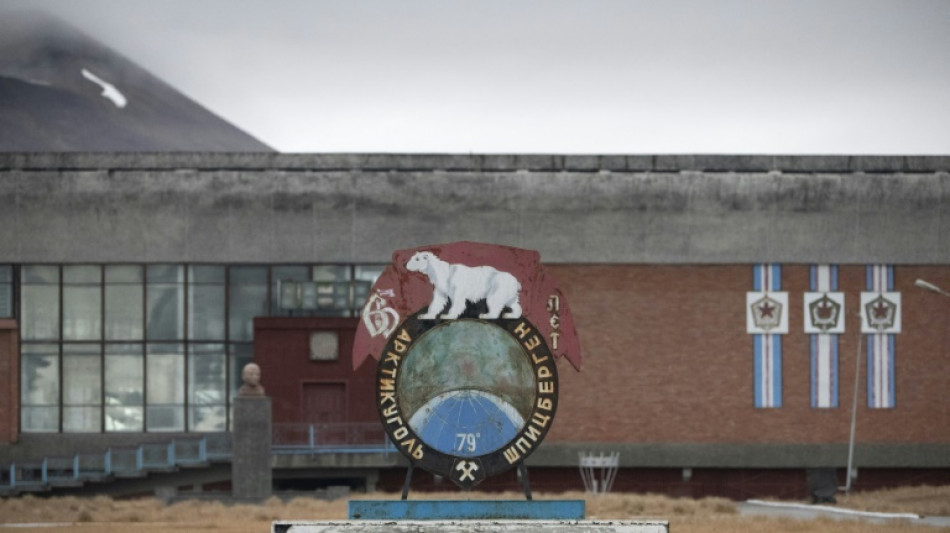
-
 Snowstorm blankets US northeast as New York sees travel ban
Snowstorm blankets US northeast as New York sees travel ban
-
Healthcare crisis looms over Greenland's isolated villages
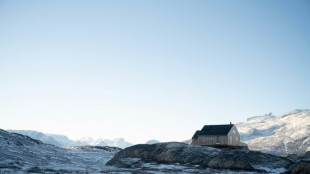
-
 Hodgkinson says breaking 800m record would put her among athletics' greatest
Hodgkinson says breaking 800m record would put her among athletics' greatest
-
Two Russian security personnel were on board France-seized tanker: sources
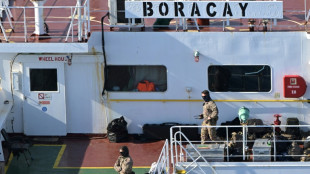
-
 EU puts US trade deal on ice after Supreme Court ruling
EU puts US trade deal on ice after Supreme Court ruling
-
Hetmyer blasts 85 as West Indies pile up 254-6 against Zimbabwe

-
 Canada PM heads to Asia seeking new trade partners as US ties fray
Canada PM heads to Asia seeking new trade partners as US ties fray
-
South Africa accepts Trump's new US ambassador
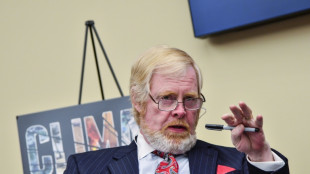
-
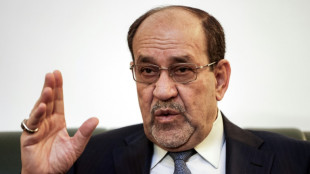 Iraq's Maliki defends PM candidacy, seeks to reassure US
Iraq's Maliki defends PM candidacy, seeks to reassure US
-
UEFA suspend Benfica's Prestianni after alleged racist abuse

-
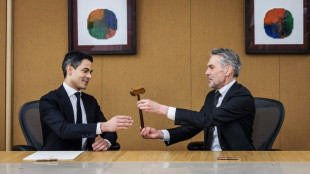 Jetten sworn in as youngest-ever Dutch PM
Jetten sworn in as youngest-ever Dutch PM
-
Italy's Enel to invest 20bn euros in renewables by 2028
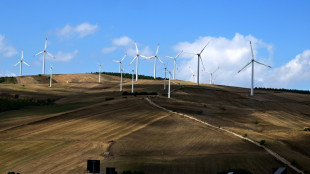
-
 BBC apologises for 'involuntary' Tourette's racial slur during BAFTA awards
BBC apologises for 'involuntary' Tourette's racial slur during BAFTA awards
-
Kristen Bell returns to host glitzy Actor Awards in Hollywood

-
 Iran says would respond 'ferociously' to any US attack
Iran says would respond 'ferociously' to any US attack
-
Venezuelan foreign minister demands 'immediate release' of Maduro
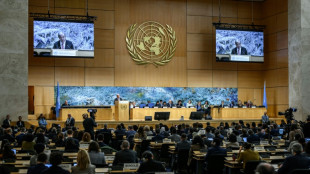
-
 Dane Vingegaard to start season at Paris-Nice in March
Dane Vingegaard to start season at Paris-Nice in March
-
Australia PM backs removing UK's Andrew from line of succession

-
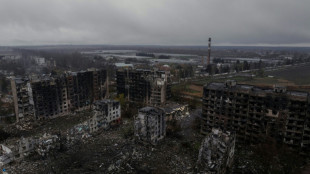 Where do Ukraine and Russia stand after four years of war?
Where do Ukraine and Russia stand after four years of war?
-
Police investigating racist abuse of Premier League quartet

-
 Fiji to start Nations Championship at 'home' to Wales in Cardiff
Fiji to start Nations Championship at 'home' to Wales in Cardiff
-
EU lawmakers to put US trade deal on hold after Supreme Court ruling

-
 Rubio to attend Caribbean summit as US presses Venezuela, Cuba
Rubio to attend Caribbean summit as US presses Venezuela, Cuba
-
'Ugly' England aim to spin their way to T20 World Cup semi-finals

-
 Nigeria paid Boko Haram ransom for kidnapped pupils: intel sources
Nigeria paid Boko Haram ransom for kidnapped pupils: intel sources
-
Tudor says Tottenham can still beat the drop despite Arsenal loss

-
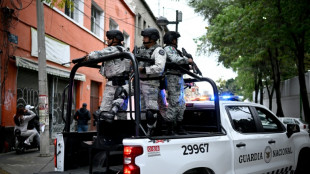 Violence sweeps Mexico after most-wanted drug cartel leader killed
Violence sweeps Mexico after most-wanted drug cartel leader killed
-
France giant Meafou capable of being 'world's best' lock

-
 Stocks diverge, dollar down over Trump tariffs uncertainty
Stocks diverge, dollar down over Trump tariffs uncertainty
-
World champions South Africa announce eight home Tests for 2026/27

-
 Liverpool boss Slot encouraged by Mac Allister's return to form
Liverpool boss Slot encouraged by Mac Allister's return to form
-
India replaces British architect statue with independence hero
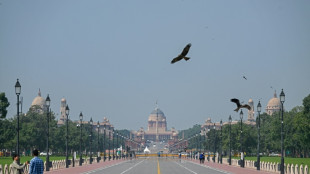
-
 Pakistan warn England's flaky batting to expect a trial by spin
Pakistan warn England's flaky batting to expect a trial by spin
-
Philippines' Duterte authorised murders, ICC told as hearings open

-
 Iran says would respond 'ferociously' to any US attack, even limited strikes
Iran says would respond 'ferociously' to any US attack, even limited strikes
-
New Dutch government sworn in under centrist Jetten
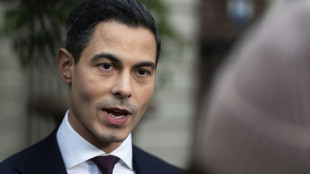
-
 What the future holds for the CJNG cartel after leader killed
What the future holds for the CJNG cartel after leader killed
-
ICC kicks off pre-trial hearing over Philippines' Duterte

-
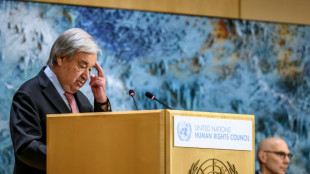 UN chief decries global rise of 'rule of force'
UN chief decries global rise of 'rule of force'
-
Nemesio Oseguera, the brutal Mexican drug lord known as 'El Mencho'
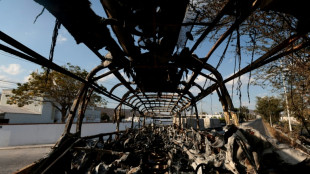
-
 Senegal's Sahad, radiant champion of 'musical pan-Africanism'
Senegal's Sahad, radiant champion of 'musical pan-Africanism'
-
New York orders citywide travel ban as major storm hits US

-
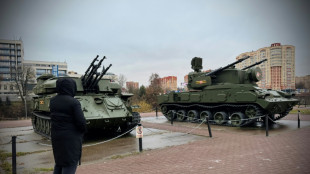 'Considered a traitor': Life of an anti-war Ukrainian in Russia
'Considered a traitor': Life of an anti-war Ukrainian in Russia
-
South Korea and Brazil sign deals on K-beauty, trade
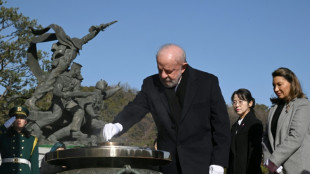
-
 Zimbabwe farmers seek US help over long-promised payouts
Zimbabwe farmers seek US help over long-promised payouts
-
Hong Kong appeals court upholds jailing of 12 democracy campaigners
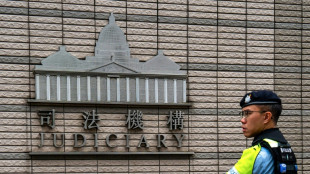
-
 India battle for World Cup survival after 'messing up on grand scale'
India battle for World Cup survival after 'messing up on grand scale'
-
'I will go': Bengalis in Pakistan hope for family reunions

-
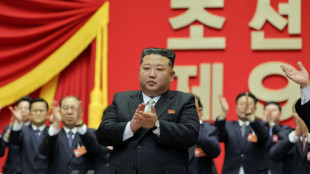 North Korea touts nuclear advances as Kim re-chosen to lead ruling party
North Korea touts nuclear advances as Kim re-chosen to lead ruling party
-
South Korea protests 'Victory' banner hung from Russian embassy
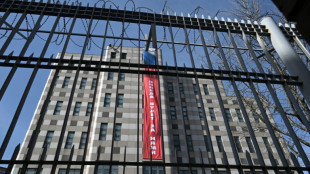

Soviet-era outpost helps Russia retain a foot in Norwegian Arctic
With its bust of Lenin, cultural centre and KGB offices, the abandoned Soviet outpost of Pyramiden may seem like a time-warped Arctic oddity but is valued by Moscow as it vies for clout in the warming region.
Russia has made the development of the Arctic a strategic priority, pinning its hopes for supremacy in the region on a fleet of giant nuclear-powered icebreakers.
The tiny ex-mining settlement of Pyramiden, meanwhile, helps Moscow retain a footprint in Norway's Svalbard archipelago, high above the Arctic Circle.
Norway -- a NATO member -- was afforded sovereignty of Svalbard under the 1920 Treaty of Paris but all signatories, which included the Soviet Union, were given equal rights to explore and exploit its mineral resources.
Russia began coal mining in Barentsburg, another settlement in the archipelago, in 1931, and later in Pyramiden, where the Russian community grew to up to 1,200 between 1960 and 1980.
Being sent to Pyramiden was considered a plum job for a miner, a tour guide told AFP.
On the Western side of the Iron Curtain, it provided a window on Soviet power, culture and self-sufficiency, from pig breeding to its 300-seat cinema, swimming pool, gymnasium and hospital.
But as the Soviet Union fell apart, while mining continued in Barentsburg, it stopped in Pyramiden in 1998 as its performance dwindled, and the miners left.
- 'Interesting future?' -
At first sight, Pyramiden now looks like a ghost town.
No one lives there apart from a handful of Russians who run a hotel -- and the polar bears with whom visitors risk coming face-to-face.
But even though the mining community has long gone, nothing has been destroyed, an AFP photographer saw, and its vestiges offer a glimpse into the heyday of the Soviet era.
Buildings built to last are just weather-beaten from decades of harsh winters.
The rails of the funicular on which the trailers of coal were hauled down are still visible on the pyramid-shaped mountain, which gave the village its name.
Inside the buildings, it's as if time has stood still, with the occupants having left suddenly but expected back at any moment.
Phials of ore are lined up in display cabinets in administrative offices, where calendars still hang on the walls, while the KGB premises have reinforced doors and miners' files spread out on the tables.
Classrooms are adorned with children's drawings and the teacher's cup is still there.
But Yury Ugryumov, of the Arctic and Antarctic Research Institute based in Saint Petersburg, said Pyramiden was not just a place of historical memory.
"This village is not abandoned, it has been temporarily put on hold," he told AFP.
Russia is currently developing tourism and research in Pyramiden, drawing glaciologists, hydrologists and marine experts there for scientific work.
"There's hopes for an interesting future here," said Ugryumov, who heads the Russian Arctic expedition to the archipelago.
T.Ibrahim--SF-PST



